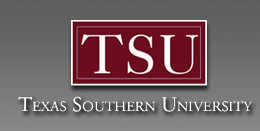Abstract
Critical thinking and innovative problem solving are two crucial skills for management students to develop in this fast-changing business world. These skills are even more relevant in today’s turbulent times of the COVID-19 pandemic. Case analysis and simulation games are popular pedagogical tools to develop these skills in a classroom setting. Remote learning due to COVID-19 has made it challenging for instructors to use these tools effectively. While working within the same course timeframe and budgets, an instructor in a national southern university, opportunistically used the current context of COVID-19 to modify a written assignment for an introductory HR course and encouraged students to think critically beyond HR functions and its direct applications. Instead of a class discussion on HR functions being translated to an online discussion, the instructor created a pseudo-simulation of HR functions. Students were asked to select one out of four business sectors - higher education, big chain of restaurants, commercial transportation or grocery stores, and explain changes in the operations of any three HR functions due to the pandemic. The assignment required not only a deeper understanding of HR functions but their connections with other business operations and overall market – arguably a stretch task that forced the students to think beyond their textbook information and use the context to critically think and arrive at innovative answers. Findings suggest that the simple design change in the assignment enhanced overall quality and presentation of student assignments compared to assignments without these specific contextual requirements. Implications of this change on student learning and engagement is discussed.
Recommended Citation
Sahoo, Madhu Bala
(2021)
"Fostering Engagement and Learning in Students through Assignment Modifications During COVID-19,"
Southwestern Business Administration Journal: Vol. 19:
Iss.
1, Article 4.
Available at:
https://digitalscholarship.tsu.edu/sbaj/vol19/iss1/4
Included in
Business Administration, Management, and Operations Commons, E-Commerce Commons, Educational Methods Commons, Entrepreneurial and Small Business Operations Commons, Management Information Systems Commons, Marketing Commons, Organizational Behavior and Theory Commons, Real Estate Commons

